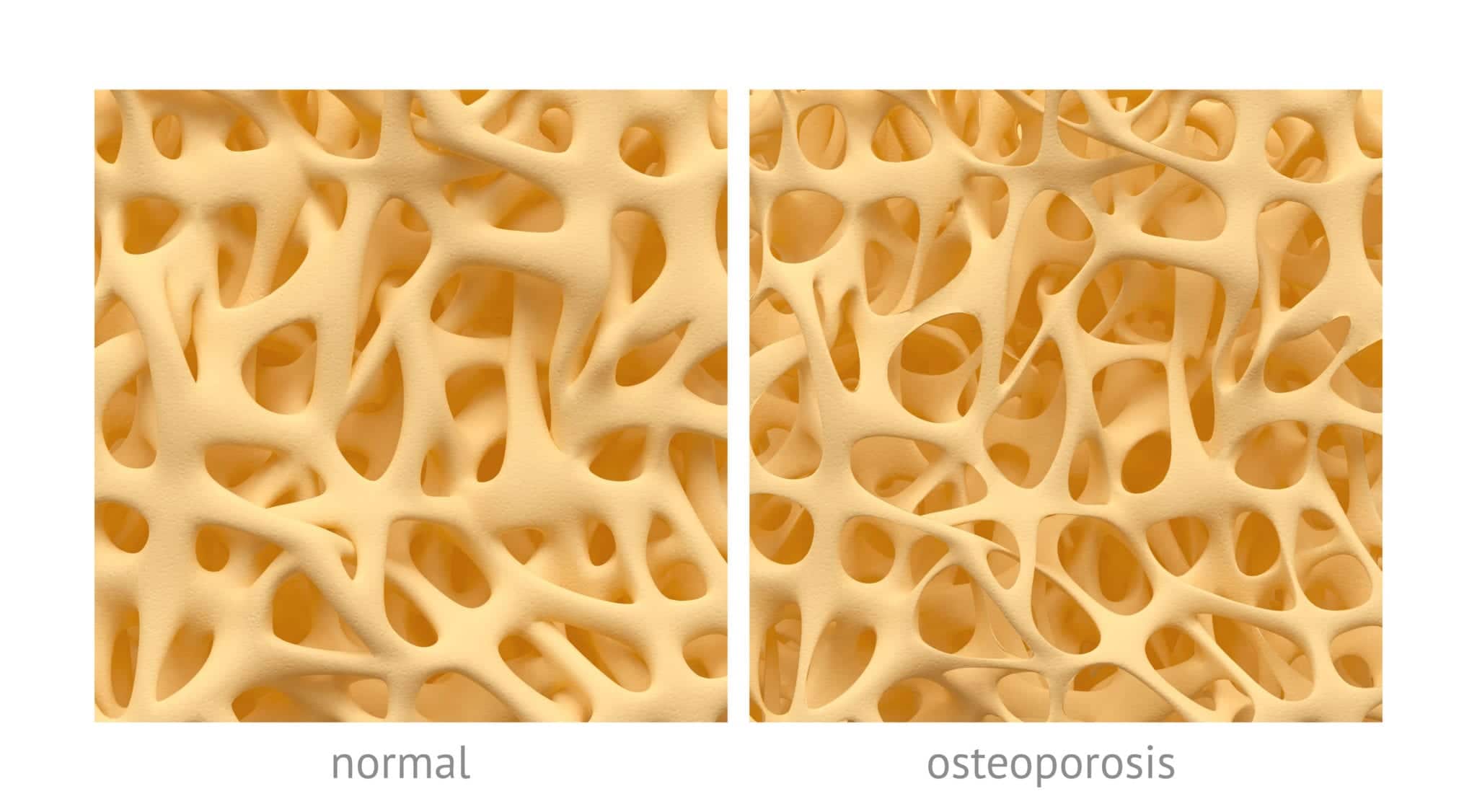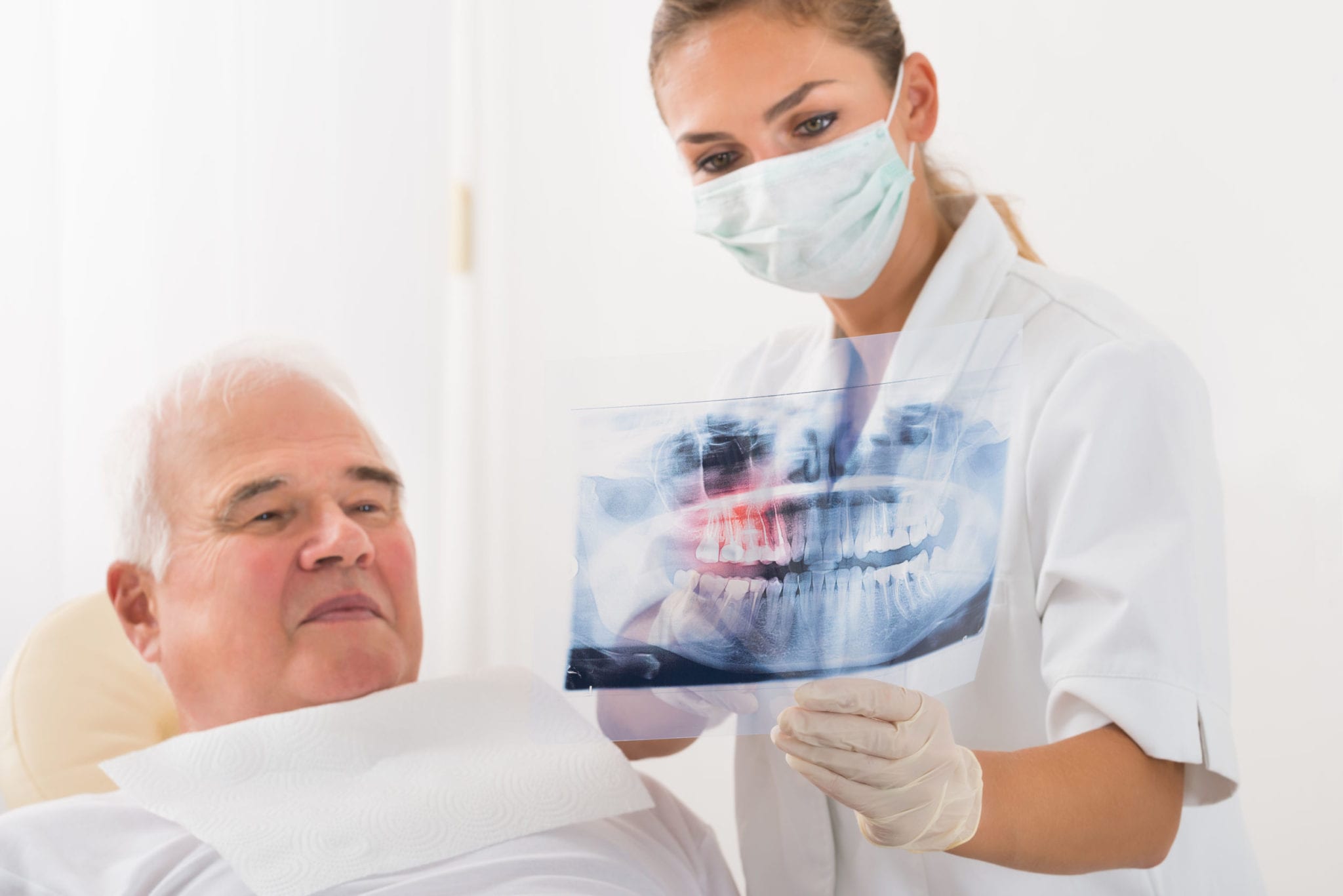
Osteoporosis is a serious and common bone disease that weakens bones by reducing their density. It can affect anyone, but is most common in women over 50.
Unfortunately, osteoporosis is also very difficult to detect, and is often only diagnosed when bone density has decreased enough to cause a fracture. At this point, the bones are already weakened, and treating the condition becomes an uphill battle.
Interestingly, your dentist may be able to pick up on the first signs of osteoporosis, as certain oral health issues are common in early stages. You can then be referred to a specialist for a bone density scan and treatment before it’s too late. In this way, your South Florida dentist just might be your first line of defense.
Below, we review symptoms of osteoporosis your dentist can help detect, and how this disease can affect your oral health. We also discuss a few prevention measures you can take in avoiding osteoporosis altogether.
Oral Health Indicators of Osteoporosis
Your dentist may find the first signs of osteoporosis after reviewing your medical history and performing a clinical exam and x-ray. Your medical record will provide risk factors such as family history, smoking, calcium deficiency, and an inactive lifestyle.
Here are other signs may also suggest the possibility of osteoporosis:
Bone loss in the jaw around the teeth
If you have bone loss in your mouth, this could be an indicator of bone loss elsewhere in your body. Your dentist will make year-to-year comparisons of your x-rays, which may reveal a decrease in bone density in the jaw and around your teeth.
Tooth loss
People with osteoporosis generally experience tooth loss more frequently than those with healthy bone tissue due to low bone mineral density.
Loose or ill-fitting dentures
In some cases, bone loss can be so severe that it’s not possible to create functional dentures. This can also lead to worsening conditions like nutritional deficiency, mouth sores, and difficulty speaking.
Gum disease
Gum disease may suggest an underlying disease such as osteoporosis, and can even compound bone loss.
If you have a family history of osteoporosis, it’s critical to make all of your healthcare providers, including your dentist, aware of this. Your healthcare team can put preventative measures in place, and regularly screen you for osteoporosis.
How Osteoporosis Affects Your Oral Health
For those who have already been diagnosed with osteoporosis or have a family history of this disease – it’s important to tell your dentist. As we covered above, decreased bone density in the mouth can lead to tooth loss, gum disease, and problems with dentures. It can also lead to complications from certain oral surgeries.
If you are currently living with osteoporosis, practicing excellent at-home care is paramount in preventing your condition from becoming unmanageable.
Regular dental checkups – at least twice annually – are also imperative to ensuring proper management of your condition. Additionally, It is especially important not to delay or postpone dental treatments, as allowing problems to linger makes complications more likely.
Preventing Osteoporosis
You can decrease your risk of osteoporosis by getting enough exercise, especially weight-bearing exercise. Consuming a diet that’s high in protein and calcium and taking calcium and vitamin D supplements can also help. Additionally, you can eliminate risk factors such as smoking and excessive caffeine or alcohol intake.

The fact is, preventative measures and early detection are your best lines of defense against osteoporosis. Because early signs of disease often manifest in the mouth, your dentist may be the first to pick up on this serious health condition.






